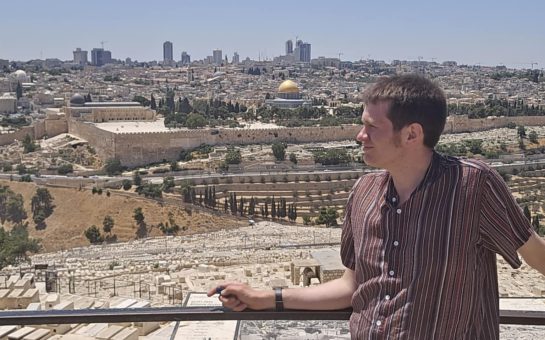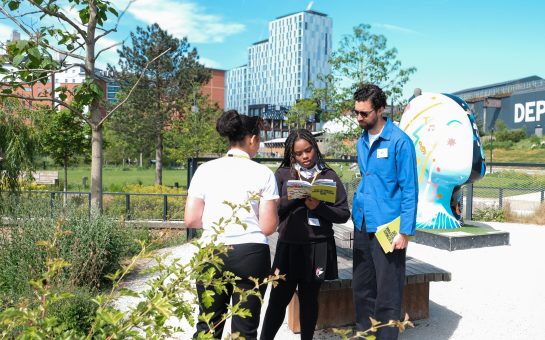The ‘minor changes’ to GCSE and A-level exam timetables to accommodate Muslim students fasting for Ramadan is not Islam being given special privilege in the UK, says a Rochdale commentator.
During Ramadan, Muslims fast during daylight hours. This means that they abstain from drinking water and eating, a level of sacrifice that is likely to adversely affect exam performance.
The Joint Council for Qualifications (JCQ) said that core exams had been moved before June 6, which is when Ramadan starts, after consultations with Muslim groups.
This decision has gone under severe scrutiny, as prominent social figures such as Richard Dawkins, Julia Hartley-Brewer and Michael Fabricant have taken to Twitter to express their outrage.
UK exam schedules changed to pander to religion: Ramadan. Parents who starve their children for idiotic religious reasons should be ashamed.
— Richard Dawkins (@RichardDawkins) January 7, 2016
Changing school exam schedules for Ramadan – because Islam trumps all else. Me for @Breitbart https://t.co/e4j0dvRaDc via BreitbartNews
— Julia Hartley-Brewer (@JuliaHB1) January 8, 2016
Mohammed Shafiq, chief executive of the Ramadhan Foundation and media commentator, told MM: “Exam boards, schools, local authorities are understanding the religious makeup of it’s pupils and trying to cater their services for those people.
“Why is there recognition of the Jewish community celebrating passover? Why are exams not held during Easter break?
“It’s absolutely right and proper that British citizens as equal members of this society that should be considered as well.
“I wouldn’t call that preferential treatment, I’d call that the same treatment. But it’s something to celebrate.
“Faith is very important to people and we should do whatever we can to cater for that, and not allow politicians and newspapers to try and stop that transformation in our schools.”
Director general of the JCQ, Michael Turner, said that the board consults on the provisional examination timetable every year, considering comments from a wide range of stakeholders.
This includes schools, colleges and religious groups.
He added that large numbers of candidates and diverse range of subjects makes it harder to make significant changes to be accommodated for ‘any one group’.
GCSE and GCE subjects with large number of applicants will be timetabled prior to Ramadan and whether they are ‘set in the morning or afternoon’.
Meaning, exams might not be moved prior to Ramadan but set at a period where it is less likely to affect those fasting.
GCSE and A Level examinations in England, Wales and Northern Ireland, for example, will be held between May 16 and June 29 this year.
The timetable is likely to stay this way as long as the Muslim calendar clashes with exam season, which is said to be at least five years.
Mohammed argues that anti-Muslim narrative from newspapers and politicians create unnecessary paranoia in the UK, a country he believes is becoming intolerant.
“I’ve always believed that Britain is a tolerant country,” he said. “And that’s why we’re such a great country. When you compare religious freedom across the world, Britain would certainly be one of the best countries in the world.
“What’s starting to happen now, because of Islamophobia and anti-Muslim hatred and paranoia, we’ve actually started to become a more intolerant society where public sector organisations are thinking twice about supporting Muslims.
“I think all the comments we see from politicians like Nigel Farage, David Cameron and Theresa May, all of these contribute to a paranoia about Islam and that’s really shocking.
“We need politicians to bring people together and use language as inclusive, not divisive and does not count Muslims as second class citizens.”
Educationalists have since responded and expressed their confusion at the extent of the outrage.
Laura McInerney, editor of Schools Week, was particularly surprised by the reaction as she responded to a concerned Twitter user.
I have been amazed at the reaction to exam boards accommodating Ramadan. It’s not even a big deal. https://t.co/DlBDaZBVru
— Laura McInerney (@miss_mcinerney) January 7, 201
Why shouldn’t exams be scheduled to avoid Ramadan? My piece for the @NewStatesman https://t.co/UyNUl8jCCm
— Freddie Whittaker (@FCDWhittaker) January 7, 2016
Examining board AQA seemed to diffuse the panic, stating that timetables were accommodated for Ramadan last year – so there will be no changes in 2016.
Image courtesy of Rune Mathisen, with thanks.



